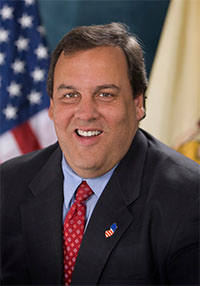Lambda, ACLU lawsuits get boost in New Jersey and Illinois courts
 In Illinois and New Jersey courts, the marriage equality movement won two more victories Friday (September 27), including a major development that puts New Jersey on track to become the 14th state to allow same-sex couples to obtain marriage licenses. And it also thrusts the issue back into the political arena in both states and possibly the next presidential election.
In Illinois and New Jersey courts, the marriage equality movement won two more victories Friday (September 27), including a major development that puts New Jersey on track to become the 14th state to allow same-sex couples to obtain marriage licenses. And it also thrusts the issue back into the political arena in both states and possibly the next presidential election.
In Garden State Equality v. Paula Dow, Superior Court Judge Mary Jacobson ruled that, in the wake of the U.S. Supreme Court decision striking the Defense of Marriage Act (DOMA), the New Jersey scheme of providing only civil union licenses to same-sex couples violates the couples’ state constitutional rights to equal protection.
The decision set October 21 as the deadline for the state to begin to issue marriage licenses to couples in New Jersey, but Republican Governor Chris Christie said, through a spokesperson, that he would appeal to the state supreme court. That supreme court ruled in 2006 that same-sex couples should have the same rights as straight couples but allowed the legislature to decide whether those rights could be granted through marriage or some other scheme. The legislature chose civil unions.
“If they move for an appeal or stay, we will fight that every step of the way,” said Haley Gorenberg, an attorney with Lambda Legal Defense, which pressed the case on behalf of six same-sex couples and the state LGBT political group, Garden State Equality.
Just hours before that decision was released, a judge in the Illinois circuit court for Cook County denied a motion from a group of clerks from five other counties to dismiss the two lawsuits seeking the right to marry for same-sex couples in Illinois. The ruling by Judge Sophia Hall enables Lambda Legal and the ACLU to press forward with their two lawsuits, Darby v. Orr and Lazaro v. Orr. The lawsuits, which have been consolidated, ask the court to invalidate the Illinois statute banning marriage licenses for same-sex couples.
The judge has set October 8 to set a schedule for briefs to be filed in preparation for the judge make a ruling on the law.
In both Illinois and New Jersey, the court cases come at politically sensitive times.
In Illinois, State Rep. Greg Harris has vowed to press again for passage of a marriage equality bill that was reportedly close to passage there in May. But Harris withdrew the bill in the final minutes of the session, saying some colleagues asked for more time to discuss the issue with their constituents. The bill had already passed the state senate. Marriage equality supporters are planning a March on Springfield event for October 22, when the legislature comes back into session.
But the political implications are even hotter in New Jersey, where voters will go to the poll in November to either re-elect Republican incumbent Christie or replace him with Democratic challenger Barbara Buono. Buono’s daughter, Tessa Bitterman of San Francisco, is openly gay, and Buono has sponsored a bill seeking to override Christie’s veto of a marriage equality bill last year. And Buono is hammering Christie’s over the latest effort to block marriage equality.
Meanwhile, Christie, who has a wide lead over Buono in current polls, is probably trying to say as little as possible about the marriage issue because whatever he says could come back and haunt him if he makes a bid for the White House in 2016. Standing against marriage equality could help secure his nomination by an increasingly conservative Republican party, but it could hurt his chances with the more moderate general electorate –one that is increasingly supportive of allowing same-sex couples to marry.
The Garden State Equality ruling came in response to a motion Lambda Legal filed shortly after the U.S. Supreme Court, in U.S. v. Windsor, declared unconstitutional the key provision of DOMA –banning federal recognition of marriage licenses obtained by same-sex couples.
New Jersey Attorney General Paula Dow attempted to argue at a hearing on the motion in August that any harm done to same-sex couples with civil unions in New Jersey was harm done by the federal government, not by state action. She said the state did provide equal benefits to married and civil union couples. But Lambda argued that, by limiting same-sex couples to civil unions, New Jersey was causing harm to the couples by blocking their ability to access federal benefits.
In Illinois, opponents of same-sex marriage noted that Judge Hall allowed the lawsuits to proceed on only two of the five grounds that Lambda and the ACLU had pressed. The two grounds on which the lawsuits can proceed challenge the state ban as a denial of equal protection to citizens based on sexual orientation and as a violation of their due process rights. Judge Hall rejected Lambda and the ACLU’s arguments that the ban also denies equal protection based on sex. She said discrimination based on sex is “distinct from” discrimination based on sexual orientation. She said the state’s right to privacy laws have not been interpreted to cover the right to personal decisions. And she said the state’s law against legislation targeted at specific groups was written to prevent laws favoring specific groups.


Leave a Reply